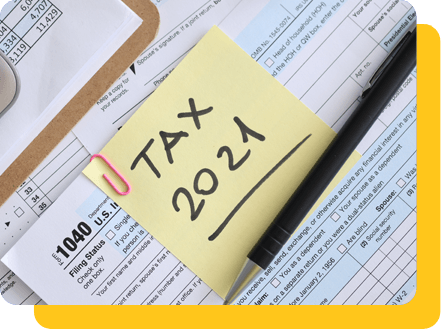
One of the most common bureaucratic problems for Italians moving to the UK in the middle of the year is the one of determining tax residenceand understanding whether or not it is necessary to make a tax return in Italy.
Tax residence
The subject of fiscal residence is, in some cases, more complex than one might think.
As this is an aspect that regulates the tax position of an Italian citizen resident abroad, it is important to understand exactly what this concept entails.
First, it is necessary to understand that simply moving abroad is not enough to change one’s tax residence. The criteria for calculating tax residence are not particularly complex, but it is essential to know them in order to be sure of correctly calculating residence for a given tax year.


Criteria for determining tax residence
In order to move your tax residence to the UK, you must meet the following requirements
At this point, however, it is necessary to clarify what it is meant by domicile and fiscal residence.
What is the difference between domicile and residence for tax purposes?
Residence refers to the place where a person lives permanently and where they intend to stay.
Whereas domicile is the place where a person has concentrated his family and social interests, as well as his business.
There are two aspects to be analysed carefully:
Calculating days of tax residence
Once you understand what is meant by tax residence and what the requirements are to be able to move your tax residence to the UK, it is advisable to prepare a file showing the actual move abroad in case the Italian tax authorities ask for information about it.
It is also useful to have an ideal record of the days spent in the UK. First of all, you should note the day of arrival and the day of departure, if you are returning to Italy on holiday. And of course, it is advisable to do this by keeping some proof of entry to and exit from your new country of residence.
What involves being a tax resident in the UK
At this point you need to understand where you will need to pay tax and whether you may be subject to double taxation. If you do not meet any of the three requirements we have discussed previously, your tax residence will remain in Italy and this means that you will have to pay tax on income earned in the UK in the second half of the year in Italy.
In this case you will then get a credit, or exemption, on the taxes you may have already paid in the UK. But with A.I.R.E. registration the situation would be different because you would move your tax residence to the UK, with UK taxation.
Conclusions
In this article we have tried to clarify what are the fundamental aspects to understand your tax position in case you decide to move to the UK.
Our advice, however, is to consult an Italian accountantwho can help you correctly determine your situation for the current and subsequent tax years.
If you need advice or someone who can help you clarify your tax situation in the UK, Britaly will be able to put you in touch with a professional who can help you and resolve your issues.
| Cookie | Duration | Description |
|---|---|---|
| cookielawinfo-checkbox-analytics | This cookie is set by GDPR Cookie Consent plugin. The cookie is used to store the user consent for the cookies in the category "Analytics". | |
| cookielawinfo-checkbox-functional | The cookie is set by GDPR cookie consent to record the user consent for the cookies in the category "Functional". | |
| cookielawinfo-checkbox-necessary | This cookie is set by GDPR Cookie Consent plugin. The cookies is used to store the user consent for the cookies in the category "Necessary". | |
| cookielawinfo-checkbox-others | This cookie is set by GDPR Cookie Consent plugin. The cookie is used to store the user consent for the cookies in the category "Other. | |
| cookielawinfo-checkbox-performance | This cookie is set by GDPR Cookie Consent plugin. The cookie is used to store the user consent for the cookies in the category "Performance". | |
| viewed_cookie_policy | The cookie is set by the GDPR Cookie Consent plugin and is used to store whether or not user has consented to the use of cookies. It does not store any personal data. |